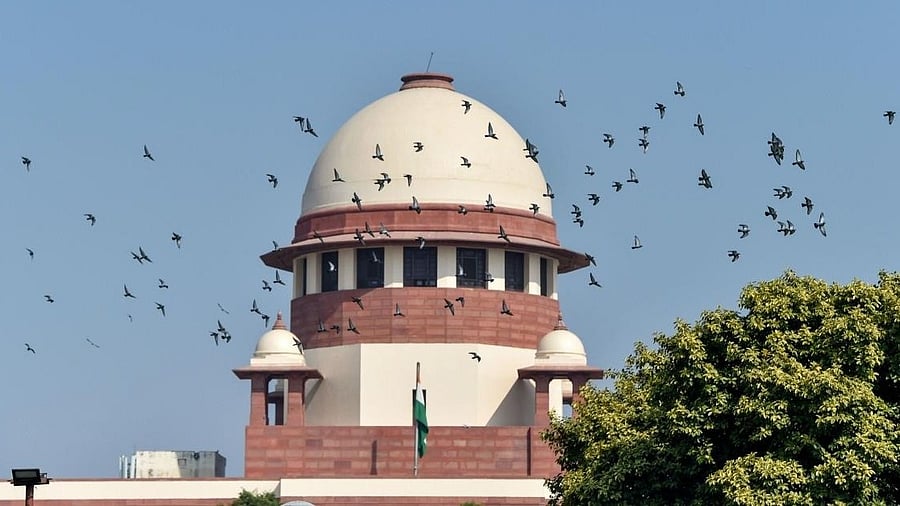
The Supreme Court of India.
Credit: PTI Photo
The Supreme Court on Monday declined to entertain a plea by the Delhi Pradesh Congress Committee, questioning the procedure adopted by the Election Commission on the First Level Checking (FLC) of EVMs and VVPATs, meant to be used in the 2024 Lok Sabha polls.
A bench of Chief Justice of India D Y Chandrachud and Justices J B Pardiwala and Manoj Misra affirmed the Election Commission's guidelines on the issue.
The bench said said the court is not inclined to interfere with the Delhi High Court order in the matter.
In August this year, the high court declined to entertain a plea challenging the "conduct" of the State Election Commission in relation to the First Level Checking (FLC) of Electronic Voting Machines (EVMs) and Voter-Verified Paper Audit Trails (VVPATs) ahead of the upcoming general election. The plea was filed by Delhi Pradesh Congress Committee Chief Anil Kumar.
The bench said now for the court to enter into this would completely delay the elections.
"We don't want to enter into this,” the bench said.
The counsel, representing petitioner Anil Kumar, argued that the FLC process should be completed at least 90 days prior to the election.
The counsel for the petitioner said he sought unique identification numbers of these machines.
The bench, however, said the petitioner should have gone before the ECI and “Congress did not participate”.
The counsel said it is not only Congress and no other party joined the process, and it is the Congress which came forward to say that it is willing to join.
“You say other political parties did not join, it is an indicator that there is faith in the outcome,” the bench said.
The court pointed out the high court has gone at length into the detailed procedure which is laid down in FLC and the involvement of the political parties is one step into that process.
"It is not that if a political party does not attend, the entire process comes under the cloud,” the bench said.
The counsel claimed the EC did not respond to a letter till the FLC was over and the high court failed to appreciate that the unique identification they supplied when the exercise got over.
The bench, however, said the court is not inclined to entertain the plea, forcing the counsel to withdraw the petition.
